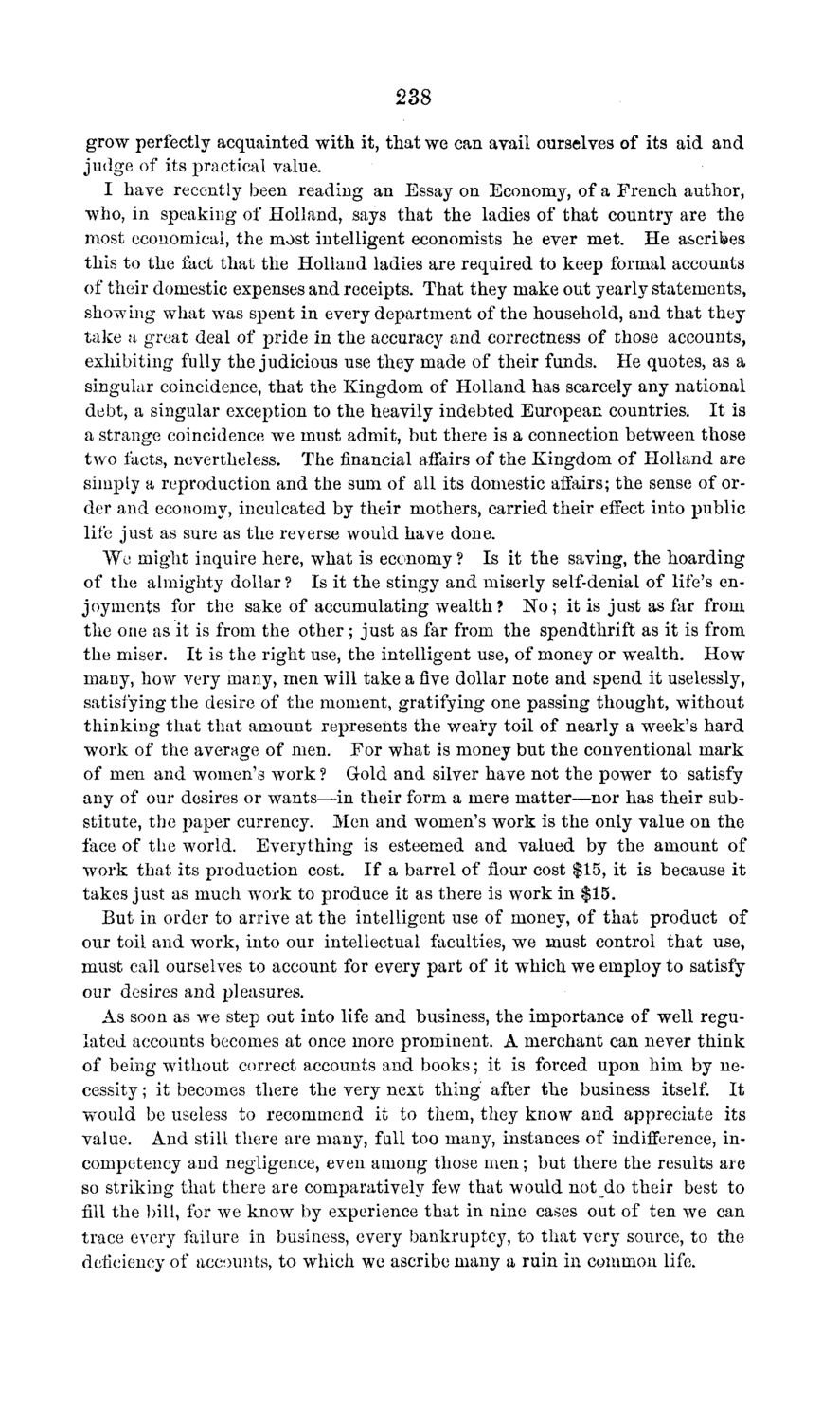| |
| |
Caption: Board of Trustees Minutes - 1869
This is a reduced-resolution page image for fast online browsing.

EXTRACTED TEXT FROM PAGE:
238 grow perfectly acquainted with it, that we can avail ourselves of its aid and judge of its practical value. I have recently been reading an Essay on Economy, of a French author, who, in speaking of Holland, says that the ladies of that country are the most economical, the most intelligent economists he ever met. He ascribes this to the fact that the Holland ladies are required to keep formal accounts of their domestic expenses and receipts. That they make out yearly statements, showing what was spent in every department of the household, and that they take a great deal of pride in the accuracy and correctness of those accounts, exhibiting fully the judicious use they made of their funds. He quotes, as a singular coincidence, that the Kingdom of Holland has scarcely any national debt, a singular exception to the heavily indebted European countries. I t is a strange coincidence we must admit, but there is a connection between those two facts, nevertheless. The financial affairs of the Kingdom of Holland are simply a reproduction and the sum of all its domestic affairs; the sense of order and economy, inculcated by their mothers, carried their effect into public life just as sure as the reverse would have done. We might inquire here, what is economy ? Is it the saving, the hoarding of the almighty dollar ? Is it the stingy and miserly self-denial of life's enjoyments for the sake of accumulating wealth? N o ; it is just as far from the one as it is from the other ; just as far from the spendthrift as it is from the miser. It is the right use, the intelligent use, of money or wealth. How many, how very many, men will take a five dollar note and spend it uselessly, satisfying the desire of the moment, gratifying one passing thought, without t h i n k i n g that that amount represents the weary toil of nearly a week's hard work of the average of men. For what is money but the conventional mark of men and women's work? Gold and silver have not the power to satisfy any of our desires or wants—in their form a mere matter—nor has their substitute, the paper currency. Men and women's work is the only value on the face of the world. Everything is esteemed and valued by the amount of work that its production cost. If a barrel of flour cost $15, it is because i t takes just as much work to produce it as there is work in $15. But in order to arrive at the intelligent use of money, of t h a t product of our toil and work, into our intellectual faculties, we must control t h a t use, must call ourselves to account for every part of it which we employ to satisfy our desires and pleasures. As soon as we step out into life and business, the importance of well regulated accounts becomes at once more prominent. A merchant can never t h i n k of being without correct accounts and books; it is forced upon him by necessity ; it becomes there the very next thing after the business itself. I t would be useless to recommend it to them, they know and appreciate its value. And still there are many, full too many, instances of indifference, incompetency and negligence, even among those men; but there the results are so striking that there are comparatively few that would not do their best to fill the bill, for we know by experience that in nine cases out of ten we can trace every failure in business, every bankruptcy, to that very source, to the deficiency of accounts, to which we ascribe many a ruin in common life.
| |